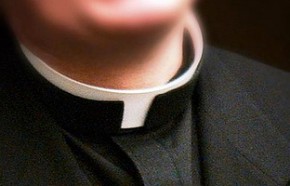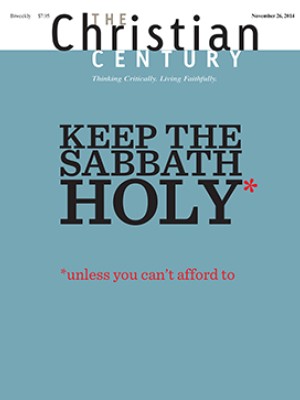Dressed for the moment
After spending seven years in the American South swathed in Methodist and Baptist glories, I moved to London and changed my clothes. I resumed the practice of wearing a clerical collar.
Historically the collar was simply the dress of an educated man in society. Today it still tells the world you’re an educated person. When I began in ordained ministry I was in a working-class parish in the northeast of England. In my first adult confirmation class there was a firefighter who told me how much he appreciated me wearing my collar when I visited him. I was surprised; I assumed he’d think I was being stiff and formal and unfriendly. “No,” he said, “my supervisor at work often comes in to work at weekends when he doesn’t have to, and he wears his casual clothes just to show that he can. So when I see you wearing your uniform I know you’re taking me seriously.”
Compare this to an experience ten years later in an underclass neighborhood. For several years I sat on the board of a group that sought to use local initiative to renew and invigorate the area. Because meetings were scheduled at various times, I’d turn up in whatever I happened to be wearing that day. Eventually one of the other board members, who like many of the board members was a local resident, said, “Please don’t wear your collar to meetings. It feels like you’re condemning us as sinners.”
Read our latest issue or browse back issues.
So the collar carries social power and spiritual power, and this can be helpful and unhelpful. And it carries sexual power too. Unattainability, spiritual permeability, discipline with a passionate underbelly: these qualities, whether existing in or projected onto the person in a collar, are the stuff of fantasy and longing and profound desire.
For all these reasons and more clergy may be reluctant to wear the collar. Clergy don’t want to make someone feel small. They don’t want to attract remarks from strangers and teenagers that seem to mock and provoke but are in fact telling these clergy something deeper—that they mock the collar because they feel that the God clergy represent isn’t with them or on their side. Clergy don’t want to seem to be super-holy persons who never thought a mean or greedy or lustful thought.
So why wear the collar? The collar says this one thing to parishioner and stranger alike: this conversation we’re about to have, this conversation we’re having, could be the most important one of your life. It doesn’t have to be—I can laugh, I can relax, I can have fun, I can just be with you in joy or in sorrow. But it can be. It may not be the right time for you, but it’s always the right time for me. I will never tell you I’m too busy. I will never make light of your struggles. I will never tell you that something more interesting happened to me. I will never say, “I know,” when you’re exploring a feeling for the first time. I will never change the subject when you bring up something that’s hard to hear.
I’ll never do any of those things because all of them in different ways are saying, “I’m out of my depth.” And what the collar is saying is, “I am someone who, however deep you wish to go, will never be out of my depth. You can trust me to listen. You can trust me to withhold my personal investment in the issues for another time and another place. You can trust me to be alert to the ways of God however strange the story you tell. You can trust me to know when some kind of specialized help may be in order. But you can also trust me to know that now could be the time for the moment of truth.”
A month after my ordination as a deacon I made one of the biggest mistakes in ministry I’ve ever made. There was a gas explosion, and several parishioners were in the hospital on the other side of town. I didn’t have a car so I took the bus each afternoon for a couple of weeks to make hospital visits. One afternoon I was getting off the bus and the driver asked me to wait a few moments until everyone else had gotten off at the last stop. He said, “Do you ever hear confessions?” I was very conscious that as a deacon I couldn’t give absolution, so I asked where he lived and gave him the address of the priest in that parish.
What a fool I was. My clerical collar had done its work. A stranger realized what I did not—that the collar was saying, “I’m not out of my depth in any conversation you are called to have with me.” But that afternoon I failed to live up to my collar. I was so worried about doing the right thing as far as procedures of church discipline that I couldn’t see that here was a sinner who was asking to meet God, a prodigal who was running to come home to the Father. That bus driver wanted me to help him change his life. I forgot that in ministry the moment of truth could always be right now.







